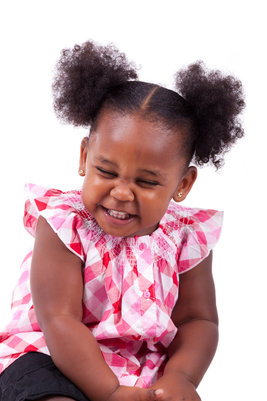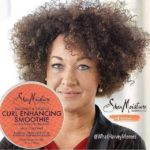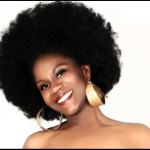Heard about Lorain Horizon Science Academy – the Ohio school that banned Afro puffs and small braided hairstyles? Evidently they only wanted hairstyles that look “natural, clean and well-groomed.”
Hang on—I’m going to get to that in a second.
But I also heard about a neighboring school that took it a step further and banned slanted eyes. Evidently, according to the school board, there are so few people with slanted eyes in the area that when people with very slanted eyes show up at school—it causes a distraction. So in order to avoid the “distraction” the school has outlined a number of steps that people with slanted eyes can take in order to minimize the impact of the slant—you know…make the eye look more like a Caucasian eye…a little more natural.
Like the ban on Afro puffs & small twisted braids, the ban on slanted eyes was implemented for several reasons. For one, the school said they wanted eyes to look “natural” and “clean.”
The school also said the policy was ultimately implemented to:
1) Help students avoid peer pressure;
2) Diminish economic and social barriers in the school; and
3) Increase a sense of belonging
Crazy right? How on earth could a school engage in such a blatantly discriminatory policy? How in the world could they place a ban on something as physiologically, genetically normal as the slant of one’s eye? I mean that effectively eliminates an entire race of people from attending the schools!
Well of course it’s crazy.
Because there is no school that banned slanted eyes. I made that up to demonstrate how re-damn-diculous, racist and discriminatory it is to apply such a ban to perfectly normal hairstyles like Afro puffs and braids.
Just like discriminating against people who are born with eyes that slant.
We often talk about natural hair in terms of an “option” as opposed to recognizing that it is a “norm” that needs to be respected. Sometimes reframing the conversation in terms of other types of discrimination can help us to see the gravity of the issue.
Now yes the Lorain Horizon Science Academy in Ohio has buckled to public pressure and reversed course. But my concern is with the mere fact that a governmental entity (or any entity) would dare to engage in such racist discrimination in the first place. My concern is what happens when the next school doesn’t care about public opinion and decides to implement a similar policy regardless of the outcry.
Your Standard Ain’t My Standard
Before they changed their mind, the Lorain Horizon Science Academy, stated that according to the policy:
“Hair must look natural, clean, well groomed…Afro puffs and small twisted braids, with or without rubber bands are NOT permitted.”
Here’s my first issue. Afro puffs are a perfectly “natural” style—if you’re a Black girl. As noted by the ladies over at BlackGirlLongHair.com:
“they are banning a protective style that black girls have worn for generations. Afro-puffs are essentially the black version of the ponytail (when pulled back our hair puffs out instead of laying down), and yet the rules do not have a ban on ponytails for students of other ethnicities.”
Here’s my second issue: To say that hair must be “clean” and “well groomed” and in the next breath ban hairstyles that are completely normal for Black girls is to suggest that by their very nature, these styles are neither clean nor well groomed.
This is what happens when you evaluate square pegs by rules that are only applicable to round holes.
“Black hair is not the same as White hair. It doesn’t act the same, grow the same or look the same. And it is not supposed to. Like Tom Burrell says in his book Brainwashed: Challenging the Myth of Black Inferiority, “Black people are not dark skinned White people.” Black hair is nappy. By design and divine intention. (And if you don’t believe in divinity – by evolutionary design.)
Nappy hair has its own standard. That standard is not a brown version of the standard for Caucasian hair. Nappy hair has its own rules. Those rules are not a darker version of Caucasian hair rules. Nappy hair has its own needs. Those needs are not a negrofied version of Caucasian hair needs.”
Black hair cannot and should not be evaluated by the standards that are the “norm” for non-Black hair. Can you imagine what would happen if a predominantly Black school banned straight blonde hair? Imagine what would happen if a school in say…Chocolate City said that hair that did not kink up or fluff out was not “clean, well groomed” or didn’t “look natural.”
There would be an uproar from the Deep South to north of the Mason Dixon line.
Racism By Any Other Name…Is Racist
Civil rights are the set of rights that guarantee my right to equality and to be free from discrimination. Human rights are the set of rights that guarantee my right to be in the body that God gave me. As noted by actress Tracie Thoms in Chris Rock’s film Good Hair,
“I always think it’s interesting that to keep my hair the same texture as it grows out of my head, is looked at as revolutionary.”
Hear me and hear me clearly. No matter how you choose to wear your hair, wearing Black hair in Black styles is not a revolutionary act. Wearing Black hair the way it grows out of my Black head is part of my civil and human right as a Black woman.
If you are White and my hair makes you uncomfortable—you need to assess your racism and process that in your own space. But using your power to make policy that discriminates against my hair is a violation of my civil and human rights (aka it’s racist). If you are Black and my hair makes you uncomfortable—you need to assess your internalized White supremacy and work that out on your own time (That was for you Hampton University!). But using your discomfort to make me uncomfortable is a throwback to Black overseers and is a powerful reminder of the injury self hate can cause.
Listen up natural heads. The more of us who choose to wear natural hair, the more we are going to have to contend with the fact that natural hair is not appreciated, valued or respected everywhere. We have to stop talking about natural hair in terms of an “option” and reframe the language.
It is our God given right to wear our hair in styles that are normal for our hair as we define it.
It is not up to White people to decide what is normal for Black hair. It is not up to Black people who desire to emulate White people and their standards to decide what is normal for Black hair. We are the ones who must create, implement, define and defend our right to wear our hair the way that is most appropriate for the way our hair grows.
If you choose to perm your hair—I support your right to do so. But if you choose to wear ethnically Black hair as a Black woman, you should not have to hide it at work, alter it at school, cover it at home or be made to feel ashamed of it in any way shape or form.
Repeat after me: Wearing Black hair in Black styles is our civil & human right. Say it over and over until you believe it and are willing to defend the truth of it. Because this is not the first time that a group in power has tried to squelch our ability to wear natural hair. And it won’t be the last.





[…] Yes. Seriously. A small part of me mistakenly thought that the last time a school determined that Black hair was “inappropriate” when worn in its natural state that a lesson had been […]